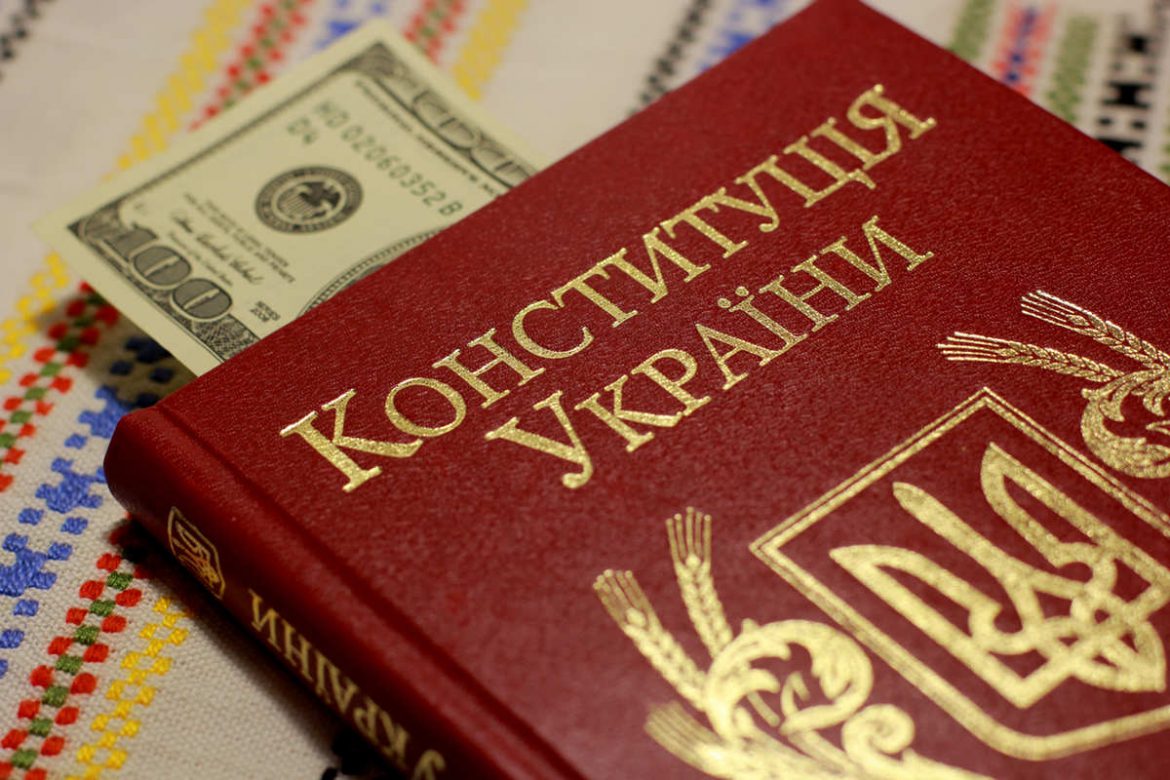In October 2014, a new Anti-corruption strategy for 2014–2017 has been adopted. It has been a comprehensive overview of the Augean stables of Ukrainian corruption which had to be cleaned. We have already analysed some actions taken in fight against corruption in our previous article. Now, when it’s duration is almost over, our partners at The Reforms Guide analysed how much has been actually done in the last three years.
Back in 2014, the strategy pointed out these corruption-related problems:
- The inefficiency of anti-corruption bodies. The Security Service of Ukraine, the Prosecutor General's Office, and the National Police have anti-corruption functions now. Moreover, the National Agency for Prevention of Corruption, the National Anti-Corruption bureau of Ukraine, and the Specialized Anti-Corruption Prosecutor's Office have been created. Besides, there's the Verkhovna Rada Committee on Corruption Prevention and Counteraction, as well as the National Council for Anti-Corruption Policy; even the Cabinet of Ministers has its government commissioner on anti-corruption policy. Nevertheless, functions of anti-corruption fight participants' do not match with international standards. These institutions are not completely independent from political influence, Finally, the public doesn't take part in anti-corruption policy execution.
- Corruption-prone politicians. Dishonest elections are the first and most important phase where corruption has a chance to get into a state machine. Legislation which regulates political parties financing has been adopted in October 2015 to minimize all the ways for corruption to get into bodies of power along with dishonest people. Now, the parties which received at least 5% of votes at the last elections qualify for state financing. The effects of this law, however, are yet to be seen during the upcoming parliamentary elections.
- Dishonest public servants. The standards for public service should have been improved in order to not allow public servants to abuse their power. Classification of posts, delimitation of political and administrative positions, salaries, and disciplinary responsibilities have been reformed. To bring Ukrainian legislation closer to international legislation, a new law on public service was adopted in December 2015. However, there is still absence of transparency in the work of the central executive authorities as well as in state enterprises. In fact, the public lacks information about their activities. Also, there is currently no monitoring of anti-corruption measures introduced by these structures.
- Corrupt courts, the Prosecutor's Office, and bodies of Ministry of Internal Affairs. If we take anti-corruption reform as mostly reform of ideology and conscience, a physical foundation for it is reform of the courts and the police. Renewed trust in the court system, independent and fair court system can be a guarantee of compliance with laws, whether the issue relates to a state official or an average member of the public. However, this is not the case yet. It is also important to amend laws which regulate the Prosecutor's Office and bodies of the Ministry of Internal Affairs in accordance with international standards.
- Union of business and power. Corruption in Ukraine will last as long as politicians are still businessmen, whether directly or indirectly through their relatives and figureheads. And as long as business influences political processes using power secured through money, especially influence over legislation. It is possible to divide politics and business by creating proper laws, providing transparent use of public resources, free competition, transparency of business, ownership relationships, etc.
- The invisibility of corruption. Access to information is the most efficient way to fight corruption; it allows journalists to conduct independent investigations and activates society. Current legislation about access to public information is confirmed as progressive by international experts, but its execution is at a rather low level. As a matter of fact, access to public information is really limited.
- Reversal of punishment for corruption. In May 2014, the law "On making changes to some legislative acts of Ukraine in the sphere of state anti-corruption policy due to the Action Plan on the European Union's liberalization of the visa regime for Ukraine" was adopted. Due to this law, the system of prevention and counteraction was improved and now it matches international standards. But the current legislative base is missing proper implementation.
- Public tolerance of corruption. Corruption blossoms primarily because of Ukrainian society's tolerance to the fact of its existence; people agree with abuses of power and breaking of laws if the result is that a citizen gets a meagre profit from doing so. That is why forming a negative attitude to corruption in people is essential in the anti-corruption strategy and in the entire anti-corruption reform, as it will not be possible without society being hostile to corruption.
Unfortunately, the anti-corruption strategy has exhausted itself in three years. It should have been structurally changed, given new approaches, and again, guaranteed with the implementation of new laws. For example, the law about access to public information is progressive and relevant, but the human factor puts the brakes on its implementation.
Adapted for UkraineWorld group (ukraineworld.org) by Vitalii Rybak

